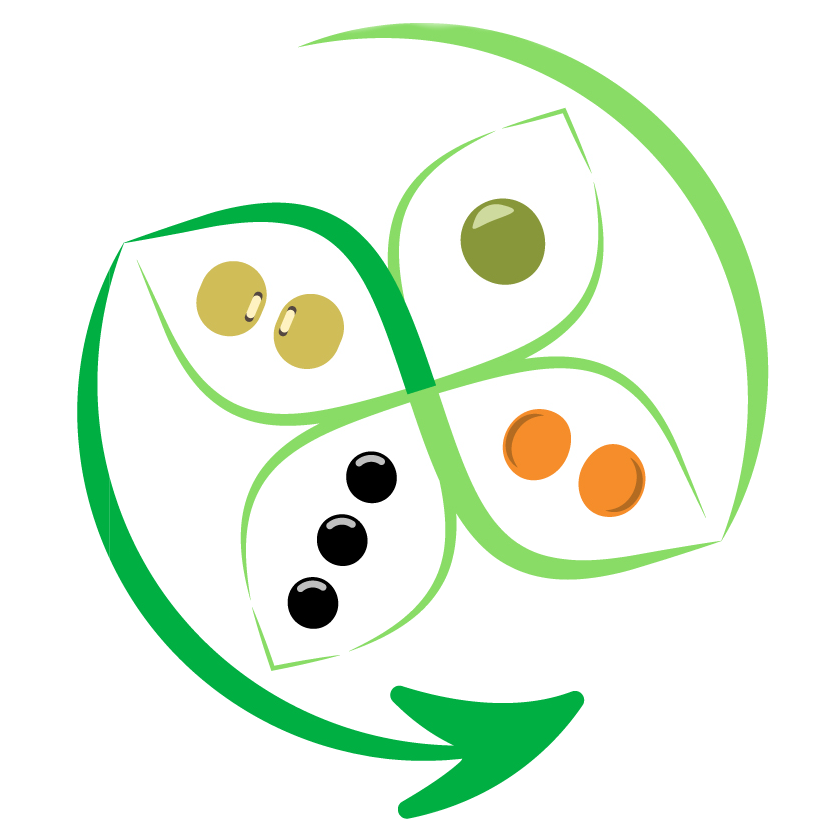B vitamin quantification: LR-93 (NAM-2) seed tissues using UPLC/MRM MS performed in 2022
Overview
Characterize the B vitamin profile of the LR-93 recombinant imbred lines using UPLC/MRM MS.
Utilize existing genotypic datasets to perform QTL analysis and look for trait-associated genetic markers for use in the breeding program for genetic improvement of B vitamin levels in lentil.
LR-93 (NAM-2) recombinant imbred lines were evaluated to assess the variation on B vitamin concentration cross genotypes and seed tissue types (seed coat, cotyledon and whole seed). Seeds will be grown in 3 site-years during 2022 and 2023. Specifically, it will assess B1 (thiamine), B2 (riboflavin and riboflavin-5-monophosphate), B3 (nicotinamide and nicotinic acid), B5 (pantothenic acid), B6 (pyridoxine, pyridoxamine and pyridoxal), B7 (biotin), and B9 (folate). It will also map QTL associated with B vitamin concentrations to identify regions in the genome responsible for enhanced vitamins profiles.
Germplasm
| Germplasm Genus |
Lens
|
|---|---|
| Germplasm Scientific Name |
Lens culinaris
|
| Germplasm Collection |
LR-93 (NAM-2; CDC Redberry x 3339-3)
|
Experimental Design
| Experimental Site Locations |
Aberdeen, Saskatchewan, Canada
|
|---|---|
| Timepoints |
|
| Biochemical Technique |
ultra-performance liquid chromatography-selected reaction monitoring mass spectrometry (UPLC/MRM MS)
|
Whole seeds for each genotype were air dried at 45°C until a moisture <13% was reached. Seeds from each plot were then divided into two groups 1) whole seeds, 2) cotyledons. Seeds from the second group were separated into cotyledons and seed coats using a Satake huller TM05C(2) and then seed coats were removed.
Seed samples were ground to a fine powder using an Udy grinder. Equal amounts powdered sample per plot for a single genotype were combined for each of 1) whole seeds, 2) cotyledons. These samples were stored at -80°C until analysis.
B vitamins were extracted from these samples and then measured using ultra-performance liquid chromatography-selected reaction monitoring mass spectrometry (UPLC-SRM MS) analysis with resulting values being expressed in micrograms (ug) of B vitamin per gram (g) dry weight of initial powdered sample.
Phenomics
- Per B-vitamin: Concentration in Seed Coat (ug/g)
- Per B-vitamin: Concentration in Cotyledon (ug/g)
- Per B-vitamin: Concentration in Whole Seed (ug/g)
Attribution
Researchers
| Data Collector | |
|---|---|
| Data Custodian |
|
| Data Curator |
Associated Datasets
LR-93 (NAM-2) B Vitamin Concentration Dataset (XLSX, TSV)
This data consists of the concentration (ug B vitamin per gram dry weight of initial powdered sample) for seven B vitamins. Samples consist of 1 site-year, 98 recombinant inbred lines and either whole seed or cotyledons. The field plots per genotype were pooled into a single composite sample. The B vitamins were measured using ultra-performance liquid chromatography-selected reaction monitoring mass spectrometry (UPLC-SRM MS).
LR-93 (NAM-2) Field Phenology Dataset (XLSX, TSV)
This data consists of phenology measurements for the plots eventually harvested for B vitamin quantification. Specifically, emergence, flowering time and maturity dates/days are recorded. Additionally, opportunistic root rot measurements were taken.

